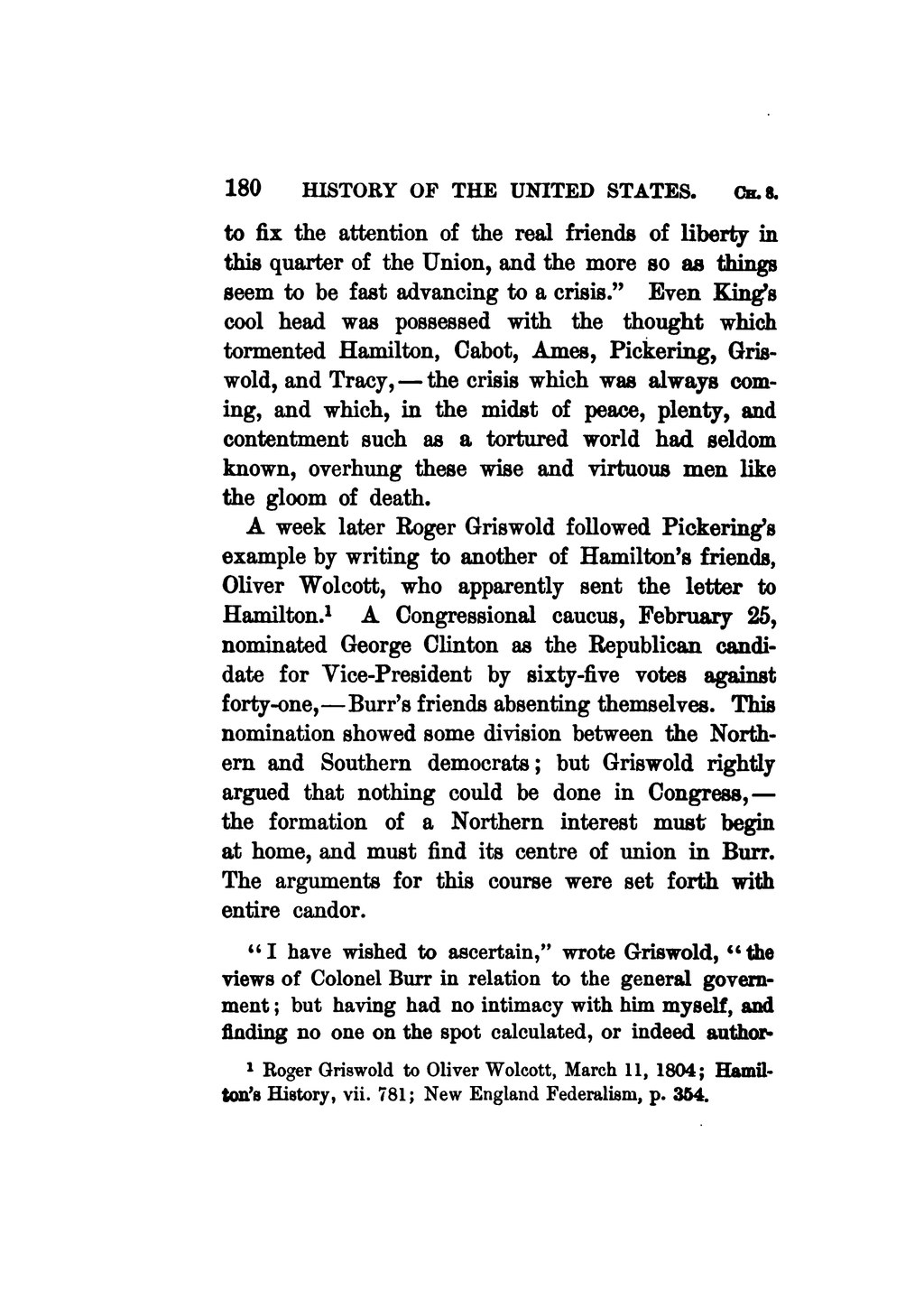to fix the attention of the real friends of liberty in this quarter of the Union, and the more so as things seem to be fast advancing to a crisis." Even King's cool head was possessed with the thought which tormented Hamilton, Cabot, Ames, Pickering, Griswold, and Tracy,—the crisis which was always coming, and which, in the midst of peace, plenty, and contentment such as a tortured world had seldom known, overhung these wise and virtuous men like the gloom of death.
A week later Roger Griswold followed Pickering's example by writing to another of Hamilton's friends, Oliver Wolcott, who apparently sent the letter to Hamilton.[1] A Congressional caucus, February 25, nominated George Clinton as the Republican candidate for Vice-President by sixty-five votes against forty-one,—Burr's friends absenting themselves. This nomination showed some division between the Northern and Southern democrats; but Griswold rightly argued that nothing could be done in Congress,—the formation of a Northern interest must begin at home, and must find its centre of union in Burr. The arguments for this course were set forth with entire candor.
- "I have wished to ascertain," wrote Griswold, "the views of Colonel Burr in relation to the general government; but having had no intimacy with him myself, and finding no one on the spot calculated, or indeed authorized,
- ↑ Roger Griswold to Oliver Wolcott, March 11, 1804; Hamilton's History, vii. 781; New England Federalism, p. 354.
